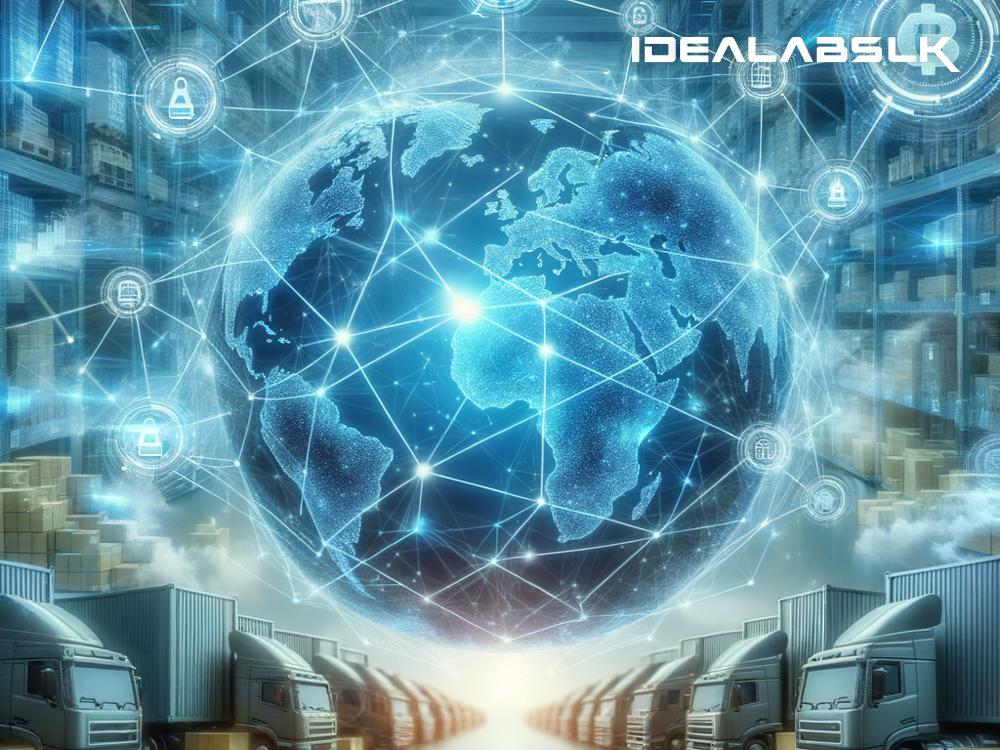The Future of Blockchain in Supply Chain Transparency: A Simple Overview
In today's fast-paced world, where goods travel halfway around the globe before landing in our shopping carts, knowing the origin and journey of products has become increasingly important for consumers. This is where blockchain technology, a term you might have heard in connection with digital currencies like Bitcoin, is making a promising entrance into the realm of supply chain management. Let’s dive into how blockchain might just be the future of supply chain transparency, making it simple to understand for everyone.
Understanding Blockchain in a Nutshell
Imagine a ledger or a record book that is not kept in one single place but is distributed across a network of computers. This ledger records transactions in blocks, and once a block is filled with transactions, it’s linked to the previous block. This forms a chain of blocks, or a "blockchain." The beauty of this system is that it's incredibly difficult to tamper with. Once a transaction is added to the blockchain, changing it would require altering all subsequent blocks, which is practically impossible thanks to the cryptographic security measures in place.
Blockchain’s Role in Supply Chain Transparency
Now, how does this relate to supply chain transparency? In the traditional supply chain, goods move from producers to consumers through a series of steps and stakeholders, including manufacturers, shipping companies, and retailers. At each stage, there's a potential for delays, errors, and lack of transparency. Here’s where blockchain comes in as a game-changer.
Enhanced Traceability
With blockchain, every time a product switches hands, details of the transaction including the time, date, and location can be recorded on this immutable ledger. For example, when a coffee brand claims their beans are sourced from a specific sustainable farm in Colombia, blockchain technology can help verify this claim by securely recording each step of the coffee bean's journey from farm to cup.
Counterfeit Prevention
Counterfeiting is a massive problem in various industries, from luxury goods to pharmaceuticals. Blockchain technology can combat this by providing an unforgeable record of each product's journey. Consumers could, in theory, scan a QR code on the product and view its entire history, ensuring its authenticity.
Efficiency and Cost Reduction
Blockchain can streamline supply chain processes by reducing manual tasks such as data entry and audits, which are often prone to error. It facilitates more straightforward communication and data sharing among all parties involved. Moreover, by minimizing the risks of fraud and errors, blockchain technology could lead to significant cost reductions.
Real-time Data
Immediate access to data is another virtue of blockchain in supply chains. Stakeholders can see real-time updates about where a product is and its condition. This aspect is particularly valuable in sectors like food and pharmaceuticals, where freshness and proper handling are paramount.
The Road Ahead
While the promise of blockchain in enhancing supply chain transparency is immense, it's not without challenges. These include the technological complexity and the energy consumption associated with maintaining a blockchain network. Moreover, for blockchain to truly revolutionize supply chain transparency, widespread adoption by all stakeholders in the chain is required. This means overcoming resistance to change and establishing standards for interoperability among different blockchain systems.
Conclusion
The future of blockchain in supply chain transparency is indeed bright. It offers an exciting solution to many age-old problems of the supply chain industry, promising increased transparency, efficiency, and authenticity of products. Consumers could soon find themselves in a world where they can verify claims about their favorite products with just a click, and companies can more effectively manage their global networks.
As with any budding technology, the journey will involve navigating through challenges and learning curves. But given its potential, blockchain stands as a beacon of hope for building a more transparent, trustworthy, and efficient supply chain. In the years to come, it could very well redefine how consumers and companies view the journey products take from production to purchase.

